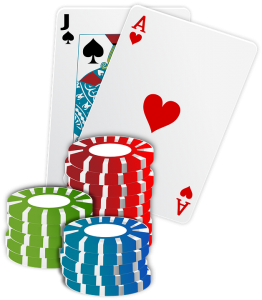 The desire to quit what you started also arises due to certain incentives. There is one experiment that clearly illustrates this, conducted with New York taxi drivers. The drivers were asked questions such as: “How long do you work during peak hours?” and “How long do you work when there is no work?”. Of course, a taxi driver's salary on busy days will be significantly higher, so it would be logical for them to work more on peak days and rest when there is less work. However, the opposite is true. Almost all drivers worked shorter hours on busy days and longer hours on days when there was less work. Why?
The desire to quit what you started also arises due to certain incentives. There is one experiment that clearly illustrates this, conducted with New York taxi drivers. The drivers were asked questions such as: “How long do you work during peak hours?” and “How long do you work when there is no work?”. Of course, a taxi driver's salary on busy days will be significantly higher, so it would be logical for them to work more on peak days and rest when there is less work. However, the opposite is true. Almost all drivers worked shorter hours on busy days and longer hours on days when there was less work. Why?
This happens due to certain incentives. For taxi drivers, their internal incentive was the average amount of money they earned in one day. In other words, they unconsciously set a goal to earn the same amount of money every day. On busy days, they quickly earned their target and rested for the remainder of the day, while on days with less work, they worked long hours trying to secure their usual pay.
Poker players often behave the same way. People like to quit when they reach a certain threshold that seems like a “good win,” and they also don't like to quit when things are going badly or when the session is tough—they usually play until they can't anymore, until they are forced to stop. And the reason is the same everywhere. Players unconsciously set a goal to win the same amount of money every day and to play for a similar amount of time, even though this is not necessarily optimal.
The optimal strategy would be to play as long as you can on days when you are winning and to quickly end the game when you are losing. On successful days, you will play an A-level game, feel particularly confident, and therefore have more opportunities to play against weaker, tilted players. The EV of a bad session pales in comparison to a successful one, so it's not worth continuing it.
So, rethink your mental habits. What are your “quitting” patterns? What amount of winnings makes you feel that it's enough, that you feel comfortable ending the game early? What loss is so small that you don't even feel it as a loss? Can you quit while “breaking even”?
We all have many internal incentives. Ideally, we want to get rid of all of them so that decisions in poker are completely objective. If we play during an upswing and quit early when things are going badly, we maximize our winnings.
The solution again is the same—to adopt the mindset that “everything is one long session.” And it doesn't matter whether you lost or won, as it's just a segment of your entire career graph. If you can look at all this with such eyes and choose when to play and when not to, based on the quality of your game, your life as a poker player will be much easier.
If you truly adopt this perspective, playing marathon sessions and breaking even will make no sense. What is meant by “breaking even”? If you dropped 10 buy-ins one night, what's so special about trying to win back those 10 buy-ins tonight? Why not try to recover them tomorrow? Or the day after? The next 10,000 hands will appear on the graph regardless of when you decide to play them, so what's special about this particular night? Except, of course, if you would play worse tonight—in that case, the only logical choice would be to go to sleep and then play another day, and then  another.
another.
Another effective mental belief is about hourly winnings. Let's say you know that your average win rate is $100/hour, and let's say you dropped $1500 tonight. So, if you want to break even, based on this idea, you should tell yourself: “Well, if I want to even out the difference, I will have to play for 15 hours. If I play for 3 hours, I will earn, on average, only $300 (and also, I am tilted and very tired, so is it really worth playing now?) The answer would probably be: no.
So, there are many strategies to help reframe our periods and ingrained incentives in the mind. But inevitably, one of the difficulties in changing your mindset is that it's impossible to clearly understand how you are doing during that session. Even if you decided to reject all daily session incentives, even if you turned off your tracking program and don't look at your bankroll, if you are minimally observant, you will eventually have an idea of how much you have risen or fallen. And how could you resist the urge to continue the session, regardless of whether you are up or down?
Well, that's a real challenge. There are no more magical tricks; you simply have to force yourself to see your reality differently. It takes time and effort, but if you understand the persistence and power of beliefs, you face the inevitable responsibility to master your mind and use it strategically to elevate your perception.





